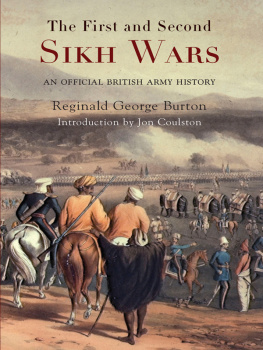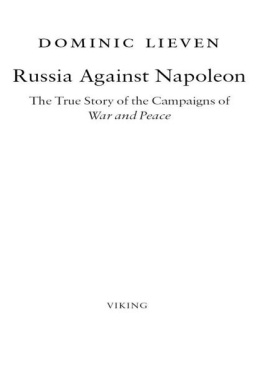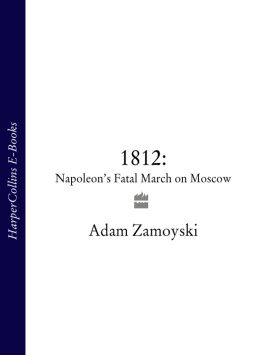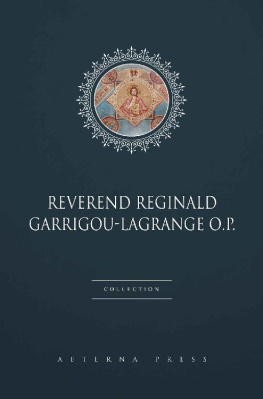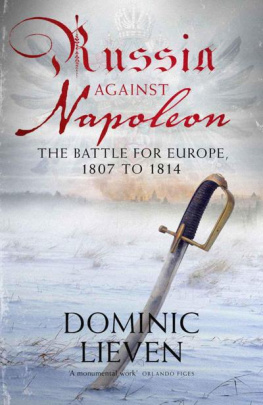
This edition is published by PICKLE PARTNERS PUBLISHING www.picklepartnerspublishing.com
To join our mailing list for new titles or for issues with our books contact@picklepartnerspublishing.com
Text originally published in 1914 under the same title.
Pickle Partners Publishing 2013, all rights reserved. No part of this publication may be reproduced, stored in a retrieval system or transmitted by any means, electrical, mechanical or otherwise without the written permission of the copyright holder.
Publishers Note
Although in most cases we have retained the Authors original spelling and grammar to authentically reproduce the work of the Author and the original intent of such material, some additional notes and clarifications have been added for the modern readers benefit.
We have also made every effort to include all maps and illustrations of the original edition the limitations of formatting do not allow of including larger maps, we will upload as many of these maps as possible.
SPECIAL CAMPAIGN SERIES. N O . 19
NAPOLEONS INVASION
OF RUSSIA
B Y
LIEUT.-COLONEL R. G. BURTON
I NDIAN A RMY
AUTHOR OF NAPOLEONS CAMPAIGNS IN ITALY,
FROM BOULOGNE TO AUSTERLITZ, ETC.
WITH SIX MAPS AND PLANS
L ES GRANDES ENTREPRISES LOINTAINES PRISSENT PAR LA GRANDEUR MME DES PRPARATIFS QU ON FAIT POUR EN ASSURER LA RUSSITE . MONTESQUIEU.
TABLE OF CONTENTS
PREFACE
WHILE the great tragedy of 1812 must ever excite the interest and wonder of mankind, like all the deeds of its mighty actor, the lessons to be derived from it are its most important if not its most attractive feature. We may point to the vanity of human greatness, here shown in its decline, and the limitations imposed by adverse circumstance on genius even in its most exalted manifestation. We may indicate the futility of undertaking a great enterprise with inadequate means, without the power and perhaps even the will to carry it to a successful conclusion; and the limits that are fixed to human ambition as much by the forces of nature as by the hostility of man. Napoleon, the embodiment of intellectual force, the incarnation of mental and physical energy, contrived for a time to control the conditions he created in Europe. He rode the whirlwind by virtue of character, of personality, of intelligence, and of imagination which made up the sum of his genius. But in course of time he created forces, not only in his enemies but in himself, which ranged beyond the power of control. There arose in him an almost blasphemous self-confidence a belief in his star that led him to neglect the elements necessary to success, which may be illustrated by his own saying: It is a proof of the weakness of human nature that men imagine that they can oppose me. Well might Goethe say of him: He lives entirely in the ideal but can never consciously grasp it.
The military lessons of the Russian campaign are numerous. In its general features, in the grandeur of its conception, and in some respects in its execution, as well as in its abysmal end, this gigantic invasion was splendid and awe-inspiring. Who can contemplate unmoved the sublime spectacle of that mighty human stream pouring across Europe into Russia, fighting its way to Moscow, and its shattered remnants struggling back across the Berezina, in whose icy flood so many thousand lives were quenched in circumstances of tragic horror. The dramatic figure of the Great Emperor, standing in the snow during the retreat, dominating the situation by the mere terror of his personality, will stand out for ever on the page of history. The fortitude in the retreat of Ney, that warrior of transcendent courage, who, asked where was the rear-guard, replied in all truth, I am the rear-guard; and in response to a summons to surrender, A Marshal of France never surrenders! Furnishes one of the finest episodes of this dramatic epoch. As regards the fundamental causes of failure, speculation leads us to inquire into the personal attributes of the greatest soldier of all history. There appears to be no doubt that at this time, although Napoleons intellect retained all its sharpness and his vision all its clearness, his physical nature had begun to decline. Already in his forty-third year he had lost in physical and mental vigour, and in decision and boldness of execution. The first failure of his plansthe escape of Bagrationwould have been averted had Napoleon been the general of 1805. But he contented himself with sitting in his study at Vilna, and issuing orders which were sound in project but faulty in execution. Nor do we find him dominating the battlefield at Borodino as he did at Rivoli, at Austerlitz, and at Jena.
But in spite of failure, when all has been considered, the campaign of 1812 will remain for all time one of the most wonderful episodes in the history of the world, sufficient of itself to secure eternal fame to the Man of whom it has been said by Napier: To have struggled with hope under such astounding difficulties was scarcely to be expected from the greatest minds. But like the emperor to calculate and combine the most stupendous efforts with calmness and accuracy; to seize every favourable chance with unerring rapidity; to sustain every reverse with undisturbed constancy, never urged to rashness by despair yet enterprising to the utmost verge of daring consistent with reason, was a display of intellectual greatness so surpassing, that it is not without justice Napoleon has been called, in reference as well to past ages as to the present, the foremost of mankind.
The author is greatly indebted to General Bogdanovichs history of the war, published in St Petersburg in 1859. The accuracy of Bogdanovichs narrative has been tested by reference to the correspondence of Napoleon. Among other works to which reference has been made may be mentioned those of De Sgur, Marbot, Labaume, Chambray, Fezensac, Jomini, Buturlin and Mikhailovski-Danilevski. The author has also had the advantage of traversing the route taken by the Grand Army in the advance to Moscow.
NAPOLEONS INVASION OF RUSSIA
CHAPTER I THE CAUSES OF WAR
Maritime EquilibriumThe Ambition of NapoleonSea PowerThe Berlin DecreeNapoleon and PolandPolicy of AnnexationControversy with Russia
Maritime Equilibrium
MARITIME equilibrium is no less a part of the balance of power than Continental equilibrium. This truth, recognised by Napoleon, but ignored by other powers on the Continent during the struggles of the Napoleonic epoch, was at the base of the causes which led up to the invasion of Russia; it was the fundamental reason of the prolonged contest between England and France; and it is the prime factor in world politics today.
Thus, although Napoleon had made himself master in continental Europe, his power was insecure so long as English ships could sail the seas unchallenged, and stand between him and the dominion of the world. And war with Russia arose in the first instance from the establishment of his continental system, by which he hoped to destroy the maritime supremacy of England.
The Ambition of Napoleon
While this and other factors contributed to annul the Peace of Tilsit, the immediate cause of hostilities lay in the ambition of the Man whose, war eagles were carried from Madrid to Moscow, and who occupied in turn the most important capitals of Europe. In all probability he looked beyond Russia into Asia, for even after his expedition to Egypt the glamour of the East had always attracted him, since the days when he said: My glory is already at an end; there is not enough of it in this little Europe. I must go to the East; all great glory comes from there. This predilection for Oriental conquest cropped up continually throughout his career. It was the motive of his treaty with the Shah of Persia in 1807. It was discussed at Tilsit with the Tzar Alexander in 1808. An expedition to Egypt was to sail from Corfu, while the united armies of Russia, France and Austria were to march on India. In the same year he instructed his librarian to collect memoirs about the campaigns which have taken place on the Euphrates and against the Parthians, beginning with that of Crassus down to the eighth century to mark on maps the route which each army followed. Again in 1811 we find him considering expeditions against Egypt and Ireland. If these succeeded, he would extend his Empire far to the East and West. They wish to know where we are going, where I shall plant the new Pillars of Hercules. We will make an end of Europe, and then as robbers throw themselves on others less bold, we will cast ourselves on India, which the latter class have mastered.. Three years more, he exclaimed to the Bavarian Minister, and I am Lord of the Universe. So it is quite probable that he looked on his expedition to Russia as a prelude to conquests farther East. Nor can we say that Jomini was without reason in accusing the English of declaiming ceaselessly against the insatiable ambition of the French Government, while obtaining possession without plausible motive of an empire of a hundred million human beings in Asia.




